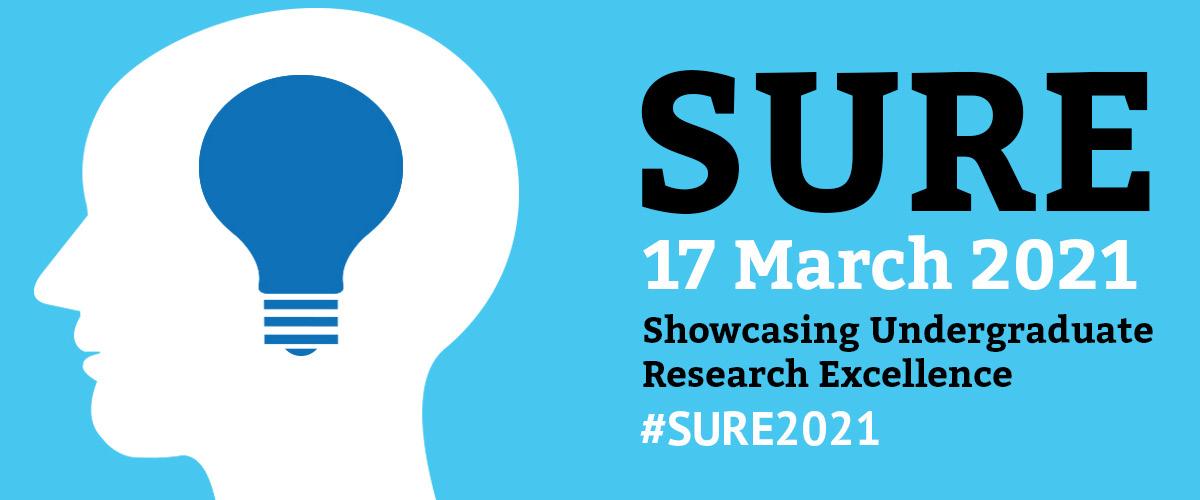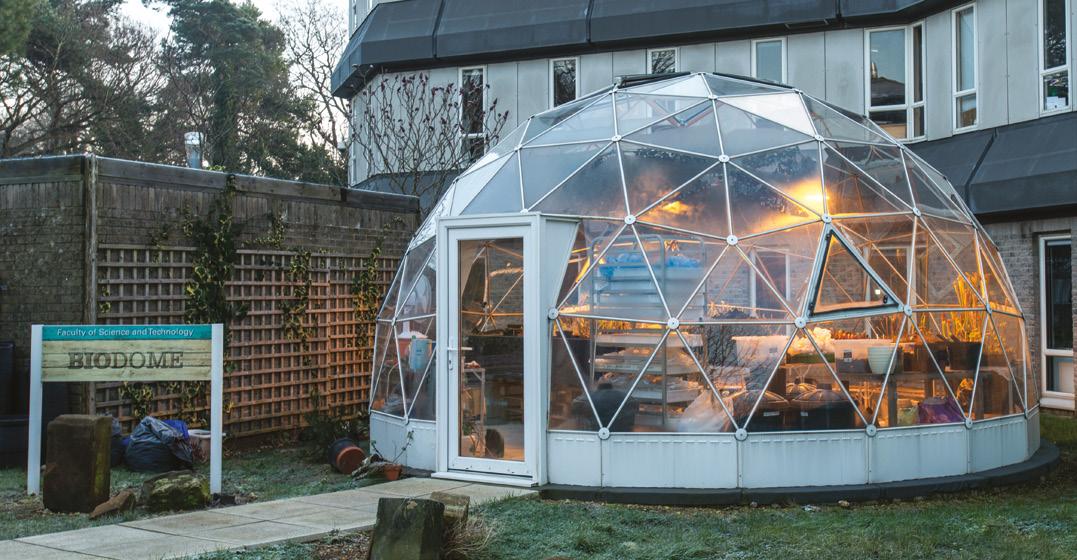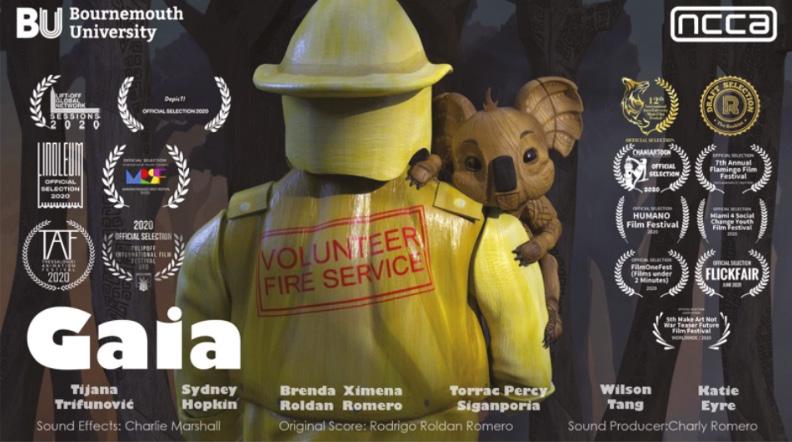
7 minute read
Objective 2: Aligning education and research with our crisis response
It is our objective that our academic community will align education and research with the crisis, in terms of appropriate programme content, research outcomes, and the way we operate, including increasing crisis awareness and literacy.
Examples of best practice
Education
Target: All programmes to include the climate and ecological crisis in at least one unit per level (year) by 2022/23
As a university, our largest legacy is our students, and this ambitious target to embed the climate and ecological crisis within all our programmes is critical to ensuring that our graduates have the skills, knowledge and values to support a transition to a low-carbon society within all sectors. This work is led by our cross-Faculty Sustainability Academic Network who have been preparing a university-wide mapping of all courses to understand how many currently achieve this target. Through the Education for Sustainable Development Community of Practice, we have shared best practice and identified what support academics need to ensure we achieve this target.
BAFTA Albert sustainable media training
107 students in our Faculty of Media & Communication gained certification from BAFTA Albert’s ‘Applied Skills for a Sustainable Media Industry’ programme. The 7-hour course explores the media industry’s impact upon the environment and identifies ways to improve it through practice, including how to create content that encourages wider societal change. The student assessment included completing a carbon calculation for an industry production and a statement on how they would reduce it through specific measures. The course was well-received for its sectorspecific and sector-leading teaching.
Globally responsible business practice
Global Business Ethics, Corporate Social Responsibility & Sustainability is a unit offered within the BU Business School. It aims to put ethics at the core of our thinking about business globally and generate insightful thoughts on sustainable business practices, stakeholder engagement and the importance of accountability in the relationship between businesses and their various stakeholders. Students have explored environmental issues, such as deforestation, through the lenses of multinationals and an understanding of complex global supply chains to recognise their role in creating change.
It was incredibly insightful and has greatly expanded my understanding of our impacts and effects on the environment, not just limited to the creative industries but on a global scale as well. Understanding complex global supply chains allowed students to see how large global organisations are having to account for their adverse impacts. Students have begun to see the importance of NGOs and civil society as powerful forces for change, and the need for corporations to be a key player in resolving the climate crisis.
Student who completed BAFTA Albert training
Dr Louise Preget, unit lead
SURE Sustainability Award
In March 2021, fifty BU students participated in the sixth Showcasing Undergraduate Research Excellence (SURE) conference which, for the first time, offered a Sustainability Award to the research project that was deemed to most effectively showcase the skills, knowledge and values needed to contribute to the UN Sustainable Development Goals (UNSDGs). The Award was won by Jack Sykes, who donated his £25 prize to the Woodland Trust, for his research, ‘The Right to the City: Investigating Urban Social
Movements against the Commodification of our Cities’.
I’m delighted that the judges saw the potential of the project and I’m happy that these issues have been brought to the forefront of political discourse. I hope others will expand upon it further.
Jack Sykes, winner of SURE Sustainability Award 2021 Living Labs
This year we developed a portfolio of Living Labs projects that students can use for their research assignments or projects. We worked with the MBA programme to deliver a course-wide Living Lab, in which the students worked in teams to identify suitable offsetting projects that would fit BU’s values and offer co-benefits across the UN Sustainable Development Goals.
Carbon literacy
Our Sustainability Team have achieved Carbon literacy certifications from the Carbon Literacy Trust and we have trialled delivery of student carbon literacy training. We plan to roll out training for staff and students reaching 93 people in the next academic year and target achieving Carbon Literate Organisation Status by 2023.

BU academics are key in bridging the gap between what we need to do and what we know how to do to tackle the climate and ecological crisis and to support our global ecosystems. Here is a selection of research projects BU completed in the past academic year to support these aims:
Ecosystem collapse and recovery
Written by Professor Adrian Newton
Exploring ecosystem collapse and recovery, this book shares how ecosystems can be managed to avoid disaster events by reviewing evidence from both prehistory and recent examples of collapse including the bleaching of the Great Barrier Reef and the dieback of ancient woodlands in the New Forest, local to Bournemouth. It helps inform ecosystems management while recognising that ecosystem recovery always takes longer than collapse.
How big is my carbon footprint? Understanding young people’s engagement with climate change education
Co-authored by Dr Lyle Skains
This paper finds that children’s engagement with climate change related to their sense of capacity to effect change. It presents a new engagement model for climate change education as a result of analysing interactive digital narratives created via You and CO2.
A global analysis of subsidence, relative sea-
level change and coastal flood exposure and
Global costs of protecting against sea-level rise at 1.5 to 4.0 °C
Co-authored by Dr Sally Brown
Being the first study to analyse global sea-level rise combined with measurements of sinking land, it found that coastal populations are experiencing relative sea-level rise up to four times faster than the global average, calculates the costs associated with adapting to such changes and recommends solutions.
“This study demonstrates that rising sea-levels will cause damage to our coastline regardless of whether we mitigate for climate change or not. We have to be proactive in adapting to sea-level rise, through protection, changing the ways the coast is managed or ultimately retreating.”
Sally Brown Unlocking the secrets of how fish move within the UK’s longest river
Contributed to by Catherine Gutmann Roberts
This five-year study tracked five species of fish on the River Severn to reveal new insight into fish movement within UK rivers. Identifying the previously unknown negative impact of artificial barriers on migration as well as altering the habitat itself, the research is used by the Unlocking the Severn project which aims to reconnect hundreds of miles of river habitat for fish.
Evaluating optimal solutions to environmental breakdown
Co-authored by a number of academics in our Life & Environmental Sciences department
This paper examines the potential effectiveness of different environmental policies in tackling climate change, biodiversity loss and pollution, and as such, their overall benefit to the environment, and identifies the key features policies needs to provide real environmental benefits.
“An integrated approach, adopting policies combined with nature-based solutions would be most effective to preventing environmental breakdown, as they address societal and environmental issues simultaneously.”
R. Stafford et al.
We are proud that Professor Zulfiqar Khan, a BU Professor of Design, Engineering & Computing, has been presented with the Albert Nelson Lifetime Achievement Award in recognition of the significant value that his multidisciplinary research on sustainable methodologies and low carbon technology adds to society.
We want to ensure that students don’t just gain the skills, knowledge and values to address the climate and ecological crisis in their curricular learning, but also within our co-curricular and extracurricular opportunities as well.
Award-winning Virtual Project Lab
BU’s Careers Team joined forces with Natwest, Wessex Green Hub, the BU Project Management Team and Student Project Bank to bring students the unique extra-curricular Virtual Project Lab. Over three weeks, students worked in interdisciplinary teams to deliver a proposal to Wessex Green Hub’ real life project brief on how to improve industry collaboration around sustainability initiatives within education, home and buildings, leisure and tourism, nature and agriculture, transport, water and waste. Proposals included a virtual eco-house tool, a tube map interactive visual for sustainable transport, and a mobile app for sustainable companies in the area.
Winner of the BU Excellence in Education for Sustainable Development Award 2021.
Marketing sustainable travel
Four BU students won the DMA Talent Marketing Challenge for 2021, receiving the £1,000 prize for their winning marketing campaign to encourage young travellers to use ScotRail’s eco-friendly service, promoting the use of train and bicycle travel to explore Scotland.
Virtual production
BU’s sector-leading National Centre for Computer Animation has started exploring virtual production. This innovative technology using an LED wall captures virtual and physical content in a single shot, and has the potential to embed greater sustainability in production practices and reduce the environmental footprint of productions.
Gaia: the award-winning short film

A group of BU students won the DepicT Audience Award 2021 for Gaia, an animated short film that pays tribute to animals killed by the Australian bush fires. The film was selected from over 1300 entries and tells the story of an Australian Koala caught up in a dangerous fire. Katie Eyre, who contributed to the film, said: “Working as a part of the team that produced Gaia was such an amazing experience, not only is the message of the film something I’m very passionate about but the team are the most supportive and talented group of people, it was such a pleasure to work with everyone”. Watch Gaia here.






